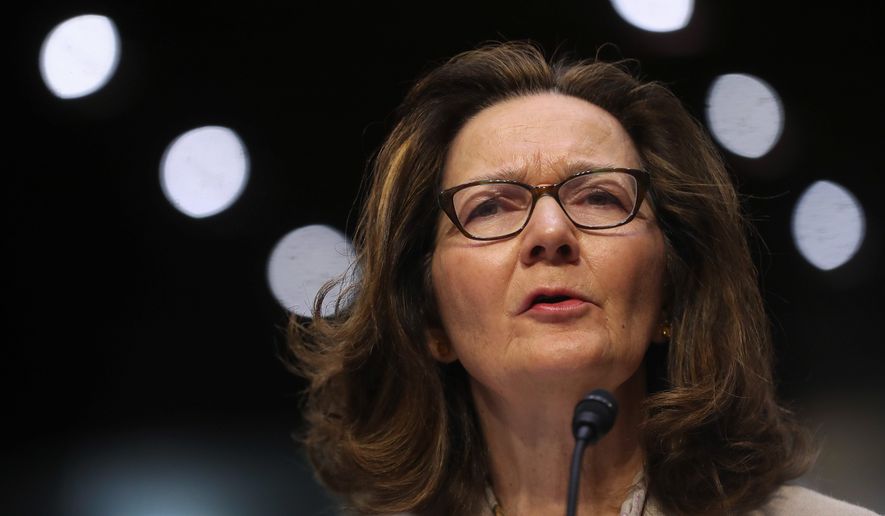Gina Haspel’s nomination as the next CIA director looked assured on Wednesday, triggering questions over what changes she could bring to the CIA’s direction and clout with President Trump when she formally replaces Mike Pompeo as director.
The longtime undercover officer on Wednesday passed her first Senate hurdle to becoming the first woman to lead the CIA, winning approval of the Senate Intelligence committee after navigating a lengthy debate over the agency’s harsh interrogation programs conducted on terror suspects after 9/11.
The 10-5 vote saw two Democrats join Republicans, including committee Vice Chairman Mark Warner, who said she’ll be a capable and independent leader.
Attention now turns to the full Senate, which must vote on her nomination, but Mr. Warner’s support coupled with additional Democrats who pledged their backing, signal she’s likely to be approved.
After praising Ms. Haspel as “the right woman at the right time” to head the CIA, Senate Majority Leader Mitch McConnell on Wednesday, said the chamber would soon vote on her “expeditiously” but he didn’t announce a specific date or time.
Ms. Haspel has more than three decades of experience at the CIA and is the agency’s acting director and before that deputy director.
Her nomination earlier this spring triggered a debate over whether the harsh post 9/11 interrogation program was necessary amid America’s worldwide pursuit of suspected terrorists — with critics denouncing the tactics, which included waterboarding, as torture.
Many Democrats argued her role in running a “black site” prison in Thailand and her knowledge of interrogation tactics used to question some terrorism suspects should have disqualified her from leading the CIA.
Last week, that issue was front and center during her contentious public confirmation hearing before the Senate Intelligence committee.
On Wednesday, some of her critics lashed out again, including Sen. Ron Wyden, who called her nomination one of the most “self-serving abuses of power in recent history.”
The Oregon Democrat said that because Ms. Haspel, as acting CIA director, was in a decision-making role in determining what parts of her undercover career were declassified — thus “stacking the deck” in her favor.
But her supporters were moving on, expressing more enthusiasm that in addition to being the first woman to run the agency in its 70-year history, she will soon also be the first career clandestine service officer to serve as director since Richard Helms in the 1960s and William Colby in the 1970s.
Former CIA Moscow station chief Daniel Hoffman said Ms. Haspel was “in a unique position to strengthen the agency’s relationship with the State Department by virtue of the fact that she just worked very closely with Mike Pompeo for the past year and a half at the CIA and he is now secretary of state.”
He also noted that her time as CIA deputy director for 15 months was invaluable.
“It was like an audition for her and she clearly excelled,” Mr. Hoffman said. “She’s gained the trust of the administration, without question.”
• Dan Boylan can be reached at dboylan@washingtontimes.com.
• Stephen Dinan can be reached at sdinan@washingtontimes.com.




Please read our comment policy before commenting.